
Can you please tell us about the journey of e-con Systems?
We founded e-con Systems in October 2003 as three passionate engineers who wanted to make electronics products. One of the co-founders was my college senior, the other was a friend he met at his first job.
We started with embedded design services in the beginning. We started designing products for customers. We would do hardware design as well as software design, and the customers would take it forward and work on it.
Initially, we were doing it for some Indian companies. Slowly we got some contacts in the US and gradually we started working with many US companies.
In 2008, we figured that to continue with design services we had to either make it a big services company with thousands of people working, or else we needed to turn it into a hardware company, where we could generate more revenue and also realise our dream of making products in India. So, in 2008, we started focusing on cameras.
At that time smartphones were becoming very popular, due to which cameras were also becoming popular. It was very tricky to integrate a camera into a product. It was not only the hardware part but there were also a lot of other things; lot of knowledge about imaging and development expertise was required to integrate cameras into products.
So slowly we changed ourselves from a product design services company to an original equipment manufacturing (OEM) camera product company.
In 2013, we were around 80 to 85% a services company and 15 to 20% products company-with that sort of revenue split. Today, we are 90% product company, and the rest are customisation services. In the services sector, we get involved with customers who use our cameras. We do services for them to integrate them into the product. So that's the service part that we're doing.
This story is from the May 2023 edition of Electronics For You.
Start your 7-day Magzter GOLD free trial to access thousands of curated premium stories, and 9,000+ magazines and newspapers.
Already a subscriber ? Sign In
This story is from the May 2023 edition of Electronics For You.
Start your 7-day Magzter GOLD free trial to access thousands of curated premium stories, and 9,000+ magazines and newspapers.
Already a subscriber? Sign In
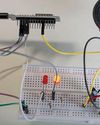
ESP32-Powered AUDIO-VISUAL SIREN
This sound alternator is designed to simulate the effects of a police siren, combining sound and light to create a dynamic audio-visual experience.
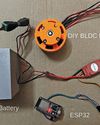
BLDC MOTOR With Web-Based Speed Control Using ESP32
Integrating wireless control into brushless direct current (BLDC) motor systems opens up exciting possibilities for applications such as remote-controlled cars, robots, and other innovative systems.
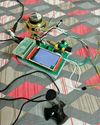
Pi Zero Portable BILINGUAL TRANSLATOR
This system is designed as a bilingual translator, leveraging the gTTS library to support multiple Indian languages, including English (en), Bengali (bn), Gujarati (gu), Hindi (hi), Kannada (kn), Malayalam (ml), Marathi (mr), Tamil (ta), Telugu (te), and Urdu (ur).
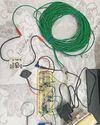
Op-Amp-Based VEHICLE THEFT DETECTOR
A simple, low-cost device can effectively alert homeowners or occupants if a parked vehicle is moved or tampered with.
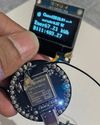
loT SMART METER With Dashboard
Energy meters in homes track electricity usage, enabling accurate billing by governments and providers.

Choose The Right Cloud Platform For Implementing loT PROTOCOLS
Working with loT protocols like MQTT, AMQP, and CoAP on cloud platforms is essential for developing scalable and efficient lol applications. The choice of the programming platform will depend on factors like project requirements, existing skills, and target devices. Leveraging the appropriate libraries and cloud services can enable seamless integration of lol devices with cloud-based applications.

Why TMR SENSORS Lead Next-Generation Design
TMR sensors are gaining traction in industries needing precision and power efficiency. What makes them the go-to choice for modern designs?
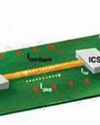
DESIGNING PCBs For EMI Management
Electromagnetic interference can derail your PCB’s performance. EMI management is not just a technical necessity but a hallmark of exceptional PCB design.

CUTTING COSTS, NOT CORNERS: Building Large Scale Applications With Open Source Software
Here are some strategies and best practices for leveraging open source to create enterprise-grade web and mobile applications without sacrificing quality or functionality.

"We Are One Of India's Very Few State Bodies To Manage The Entire Lifecycle Of The Electronics EcosystemFrom Approvals To Subsidies."
What is Gujarat State Electronics Mission GSEM), and how is it attracting major investments in electronics manufacturing, particularly semiconductor manufacturing, to Gujarat? To delve deeper, Electronics For You’s Nijhum Rudra spoke with Manish Gurwani, the head of GSEM. Here is what he revealed...